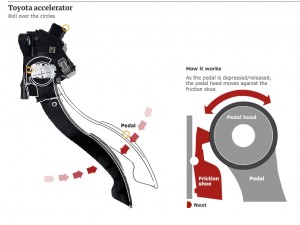Yep. My experience of it is that it’s unsatisfactory, so I agree with much of this complaint.
The Android Market (droid’s equivalent to the iPhone App Store) is fundamentally broken. It’s a poor experience from start to finish, and exemplifies the grace with which Apple builds hardware and software products.
The post focusses on three main areas that need improvement.
1. Finding Apps
Like most sites/services, finding apps works via Search and Browse. You can Search for something by word/term, and see apps that match – it works “ok” but not super impressive. Browse, on the other hand, is weak. The world is divided into Applications and Games. Games has the following categories: “All”, “Arcade & Action”, “Brain & Puzzle”, “Cards & Casino”, and “Casual” – no sports, racing, music, RPG, strategy, or pretty much anything after the letter C. Once browsing, you must sort, either by Most Popular or Newest. This means that once popular, something will stay popular. There’s no way to sort, or filter, or even view simple things like “most popular this week”, or “highest rated” or anything else. This dramatically impacts a user’s ability to find new good apps, since there’s just no view for that. And this is from Google, the uber-kings of data.
Once you find an app that seems interesting, the next step is trying to decide if you want it / it will work. Every app has a name, publisher, # of ratings, # of downloads, description, and comments. NO SCREENSHOTS or anything, but a description. The comments are sometimes useful, but typically not, as you’ll often see “crashed on my droid” or “new version seems unstable” or some other complaint. The problem with these kinds of complaints is because of all the different Droid configurations, there’s no way to tell if the comments/ratings apply to your own device.
2. Installing & Updating Apps
The installation process itself is fairly straightforward, once you find an app, you click the big Install button, then you are shown a cryptic screen with a bunch of warnings that you rapidly learn to ignore, then click OK. My big complaint on this process is the aforementioned “car alarm” warnings. I make the car alarm analogy because, much like the loud annoying car alarms we hear on random streets at random times, we pay them absolutely no attention anymore. Which is inherently the opposite objective of a warning! But with phrases like “Your personal information – read contact data” and “Phone calls – modify phone state”, there’s just no sense behind it. It might as well show “PC Load Letter” and have the same amount of effectiveness.
My other gripe is on updating apps. Since we’re still in the early stage of Droid application development, a lot of programmers are pushing frequent updates to their apps. This is great from a “shiny new toy” perspective, but getting annoying from a “stop showing me lots of alerts” perspective. Also, there’s no way to update multiple apps simultaneously, nor auto-update an app. And, since most developers at present are not displaying changelogs it’s hard to figure out if the update is worthwhile or not. Further, it’s very unclear as to whether or not the comments/rating on an app are relative to the most current version or not. Lastly, and most dominant in the category of “how I know this is a Droid and not an iPhone experience,” every time I update an app, I see the warnings about that app. Every. Time.
3. Buying, Rating, and Uninstalling Apps
Rating applications is easy, but … needs more criteria. My rating should get tied to the specific version of the app, and the platform I’m using as well. Overall the rating/comment system is fairly thin, and could use improvement.
Uninstalling applications from an Android device is one of the more awkward experiences of the system. There’s no “uninstaller”, instead you navigate back into the Market, find the app in My Downloads, then uninstall from there. This is mostly awkward because everything else in Droid is either a click-and-drag or a long-click – so the navigation/usage paradigm you learn by using the system all of a sudden doesn’t come into play. Now in reality I’m being a little dramatic, as once you’ve learned it, it’s easy, but it’s just another example of the kluge-like nature of the marketplace. Then again, if it’s so easy why does it take 9 steps on an eHow page (they don’t show the same path I use, but that’s also kind of the point)?
Some of the most irritating things are probably a consequence of having the OS run on a number of different devices. For example, I can’t get a barcode reader to work on my Pulse phone — each one failes to engage the camera. I suspect that they work fine on, say the HTC handset, or the Motorola Droid. Because Apple has an iron grip on their hardware, iPhone Apps don’t have this problem.
On the other hand, Jon Crowcroft — who is not an easy man to please — seems to like his HTC handset.



